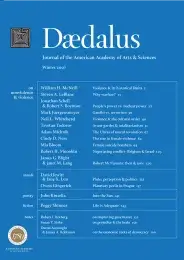The Ultras of moral revolution
We need a moral revolution!1
Do we really need one?
But of course! Replied an ultrarevolutionary, a Jacobin.
But of course! Replied an ultrareactionary, a partisan of the Counterrevolution.
Radicals, adherents of extreme solutions, Ultras of all the colors of the rainbow, have a need for revolutionary upheavals, because only upheavals that turn the world upside down allow them to fulfill their dream of a great cleansing.
I
The Jacobin, the revolutionary Ultra, says:
We need a moral revolution because we are surrounded by ‘souls of mud’– reactionaries, hidden royalists, petty individuals, one-day patriots–who are conspiring against our revolutionary government. We need a moral revolution because vice is spreading. Reactionary newspapers are sowing lies; so one has to force them into silence. Corruption is spreading; so we must look carefully at the rich. “I regard wealth,” said Robespierre, “not only as the price of crimes, but as a punishment for them; I want to be poor, so as not to be unfortunate.” France is surrounded by traitors– those poisonous insects sowing shamelessness, deceit, meanness. It is they who caused the collapse of a state and society functioning according to one system of values, discovered in 1789, with rules that allowed us to maintain a dignity and a brotherhood founded upon the need to do good. We need a moral revolution today, now that we have a chance to leave the crisis of nonmemory and the curse of a fresh start. We need a cleansing, a capacity to do good for the Revolution. It also means a recognition of one’s own errors–one’s fatal tolerance for ‘moderates,’ for the forgiving and the temperate. . . .
To read the full essay, access the PDF of the volume.
